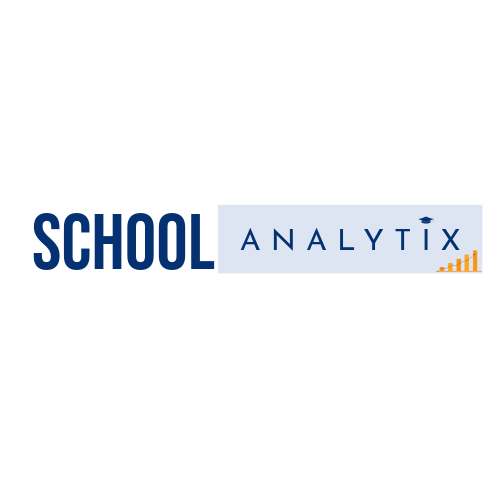Professional development programs play a crucial role in enhancing teaching effectiveness, improving student outcomes, and fostering continuous improvement in educational practices. However, assessing the impact of these programs can be challenging without robust evaluation methodologies. This comprehensive article explores the importance of evaluating professional development programs for teachers and outlines strategies for assessing their effectiveness through data analysis.
Introduction to Assessing Professional Development Programs
Professional development programs for teachers aim to enhance their knowledge, skills, and instructional practices to meet the diverse needs of students and promote academic success. Evaluating the effectiveness of these programs is essential for ensuring that they align with educational goals, meet teacher needs, and ultimately improve student learning outcomes.
Importance of Data Analysis in Evaluation
Data analysis provides a systematic approach to evaluating professional development programs by examining various indicators of effectiveness, such as teacher satisfaction, changes in instructional practices, student achievement gains, and school improvement outcomes. By analyzing relevant data, stakeholders can gain insights into the impact of professional development efforts and make informed decisions about program design, implementation, and resource allocation.
Key Metrics for Assessing Effectiveness
-
Teacher Satisfaction Surveys: Assessing teacher satisfaction with professional development programs through surveys can provide valuable feedback on program relevance, quality, and impact on teaching practices.
-
Observational Data: Observing teachers’ classroom practices before and after participating in professional development activities can help identify changes in instructional strategies, classroom management techniques, and student engagement levels.
-
Student Achievement Data: Analyzing student achievement data, such as standardized test scores, formative assessments, and course grades, can provide insights into the impact of professional development programs on student learning outcomes.
-
Peer and Supervisor Evaluations: Soliciting feedback from peers and supervisors through evaluations or peer reviews can offer additional perspectives on the effectiveness of professional development efforts.
-
Longitudinal Studies: Conducting longitudinal studies to track teacher and student outcomes over time can provide a more comprehensive understanding of the sustained impact of professional development programs.
Data Analysis Techniques
-
Descriptive Statistics: Using descriptive statistics, such as means, frequencies, and percentages, to summarize and compare data on teacher satisfaction, instructional practices, and student outcomes.
-
Correlation Analysis: Examining correlations between participation in professional development activities and changes in teacher practices or student achievement to identify potential relationships and trends.
-
Regression Analysis: Conducting regression analysis to explore the relationship between various factors, such as professional development participation, teacher characteristics, and student outcomes.
-
Qualitative Analysis: Incorporating qualitative analysis methods, such as thematic coding of open-ended survey responses or qualitative interviews with teachers, to gain deeper insights into the impact of professional development programs.
Challenges and Considerations
-
Data Quality and Availability: Ensuring the accuracy, completeness, and reliability of data collected for evaluation purposes, including teacher and student data, can be challenging.
-
Attribution and Causality: Establishing causal relationships between professional development activities and changes in teacher practices or student outcomes requires careful consideration of confounding variables and alternative explanations.
-
Contextual Factors: Recognizing the influence of contextual factors, such as school culture, leadership support, and resource availability, on the effectiveness of professional development programs.
-
Sustainability and Scalability: Designing evaluation frameworks that are sustainable and scalable to accommodate the diverse needs and contexts of teachers and schools.
Best Practices for Data-Driven Evaluation
-
Align Evaluation with Program Goals: Ensure that evaluation metrics and methodologies align with the goals, objectives, and intended outcomes of professional development programs.
-
Use a Mix of Quantitative and Qualitative Data: Combine quantitative data analysis techniques with qualitative methods to gain a comprehensive understanding of program effectiveness and inform program improvement efforts.
-
Involve Stakeholders in Evaluation Process: Engage teachers, administrators, and other stakeholders in the evaluation process to promote transparency, collaboration, and ownership of evaluation findings.
-
Iterate and Adapt Evaluation Strategies: Continuously monitor and refine evaluation strategies based on feedback, emerging trends, and changes in program implementation to enhance the relevance and usefulness of evaluation findings.
Conclusion
Assessing the effectiveness of professional development programs for teachers through data analysis is essential for informing evidence-based decision-making, improving program quality, and maximizing the impact on student learning outcomes. By employing robust evaluation methodologies, leveraging relevant data sources, and adopting best practices in data analysis, educational stakeholders can gain actionable insights into the effectiveness of professional development efforts and drive continuous improvement in educational practices. Ultimately, investing in data-driven evaluation contributes to building a culture of excellence, innovation, and continuous learning in the field of education, benefiting teachers, students, and schools alike.
